13 Essential Vitamins Your Body needs
Author: Dr. Namita Singh
Vitamins are essential nutrients that help our body to carry out vital functions such as growth, metabolism and nerve function. They can be found in the food that we eat or from vitamin supplements. Vitamin deficiency could result in serious health issues, so its intake is crucial for optimal wellbeing. There are 13 known essential vitamins and these are categorized into two types:
- fat-soluble vitamins (A, D, E, and K) and
- water-soluble vitamins (B-complex vitamin and Vit.C).
Fat-soluble vitamins are carried by fat in the body and are stored in the liver and fatty tissues. However, water-soluble vitamins are not stored by the body (except Vit. B12 and folate which can be stored in the liver), so we have to consume them on daily basis.
Fat-soluble vitamins
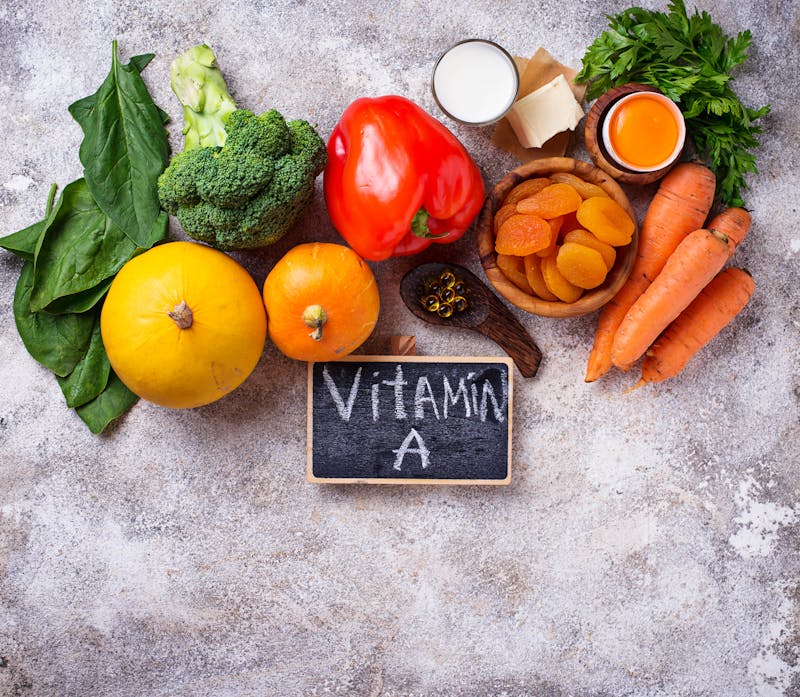
Vitamin A
Vitamin A plays important role in growth and development of bodily tissues. It is also known to be good for vision and immunity. If not taken in adequate amount, vitamin A deficiency can lead to night blindness. It is naturally found in food that you eat or can be taken through supplements. There are 2 types of vitamin A found in the diet i.e. preformed vitamin A (Retinol) which is found in animal products and provitamin A such as beta-carotene found in plant-based foods.
Source: Food rich in pre-formed vitamin A includes animal products such as milk, egg yolks, and salmon. Today, breakfast cereals and juices are also fortified with preformed vitamin A. Moreover, vegetables such as broccoli, spinach, sweet potatoes are rich in beta- carotene.
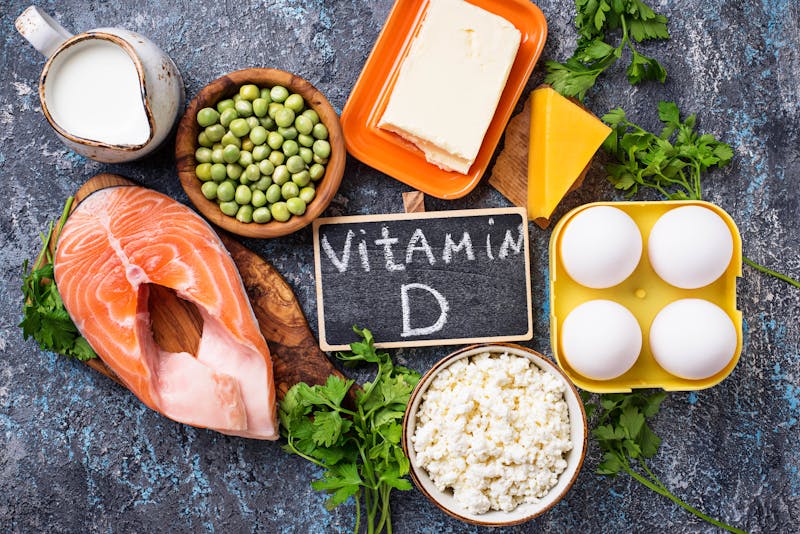
Vitamin D
Vitamin D is crucial for our body as it aids in calcium absorption needed for the maintenance of strong bones and teeth. Vitamin D deficiency can cause rickets in children and osteoporosis in adults. The main source of vitamin-D is sunlight. When exposed to sunlight, our body stimulates Vitamin-D production. Therefore, people living in high latitudes may not make sufficient vitamin D.
Source: Food containing Vitamin D include salmon, broccoli, mushrooms, whole eggs, tuna, cereals.
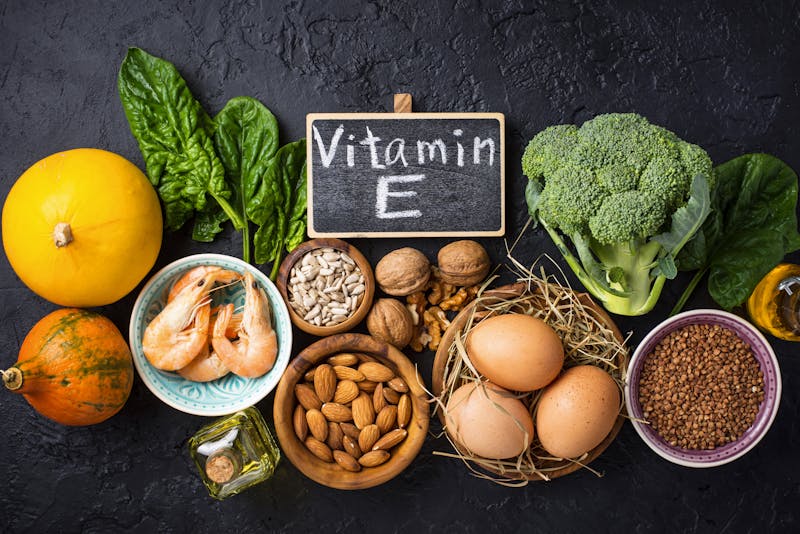
Vitamin E
Vitamin E is an antioxidant. It protects your body tissue from damage caused by free radicals. It also helps in the proper maintenance of muscles and red blood cells. If not taken in adequate amount, it can lead to impaired reflexes and coordination, immunity problems, numbness and tingling.
Source: Vitamin E is mainly found in plant products. Almonds, avocado, vegetable oils, eggs, nuts and fortified cereals are also rich in Vitamin E.
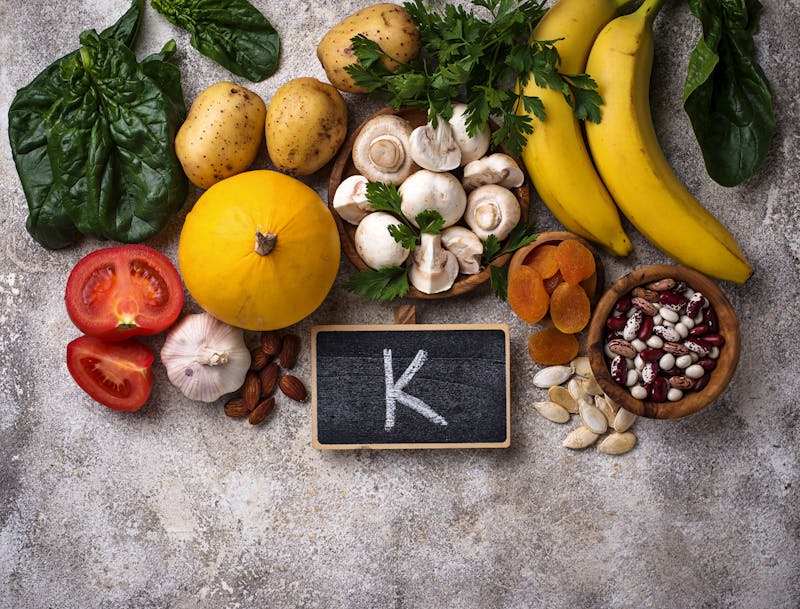
Vitamin K
Vitamin K is essential for healthy bones and proper blood clotting. Vitamin K produces protein that helps with the clotting process. However, vitamin K deficiency is rare, as most of the food that we eat contains adequate amount of it.
Source: spinach, liver, broccoli, cabbage, beans, meat, kale are rich in vitamin K.
Water-soluble vitamins
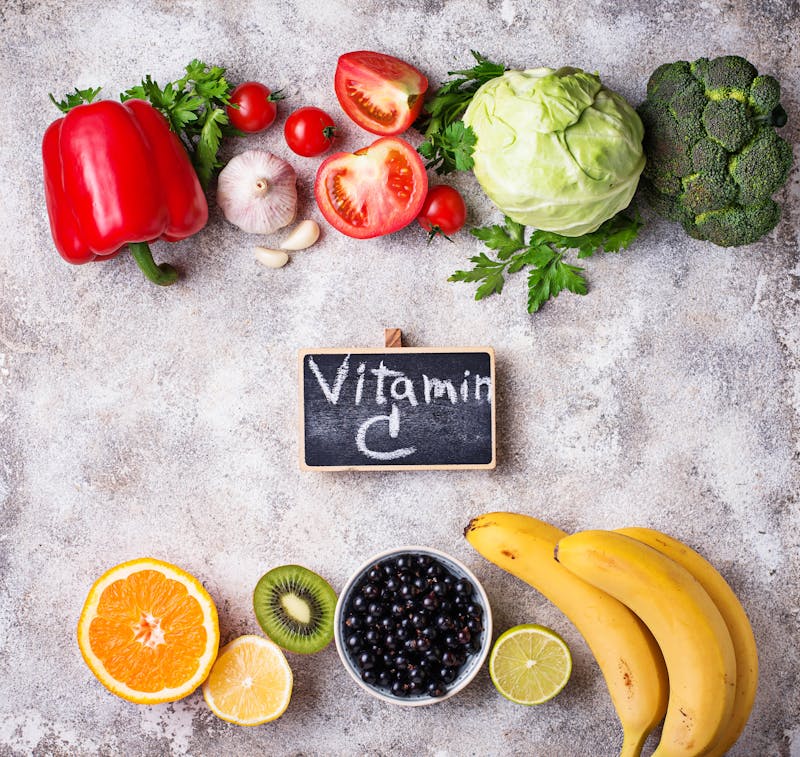
Vitamin C
Vitamin C, also known as Ascorbic acid, is an essential vitamin required for the proper growth and development of body. It is an antioxidant, which means it helps neutralize free radicals that tend to cause aging of cells. Vitamin C is essential for strengthening blood vessels and wound healing. It also promotes bone and tooth formation. Lack of vitamin C can lead to a disease called scurvy.
Source: Citrus fruits like oranges, kiwi, grapefruit and vegetables like asparagus, cabbage, broccoli, red and green peppers are rich source of vitamin C.
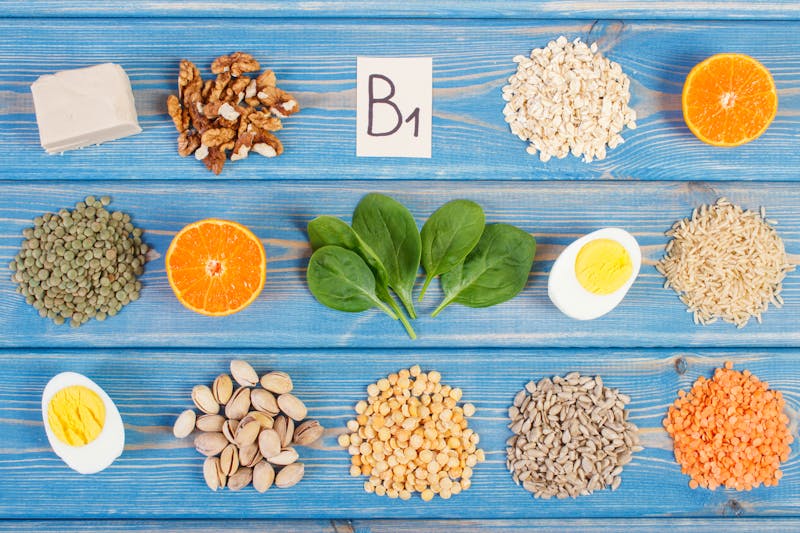
Vitamin B-1(thiamine)
Thiamine, also known as, Vitamin B1 plays important role in maintaining a healthy metabolism. It helps the body cells to turn carbohydrates in food into energy. Vitamin B1 is also essential for the normal functioning of the heart and nervous system.
Source: Vitamin B1 is found in a range of foods such as cereals, meat, nuts, pork, sesame seeds, and legumes.
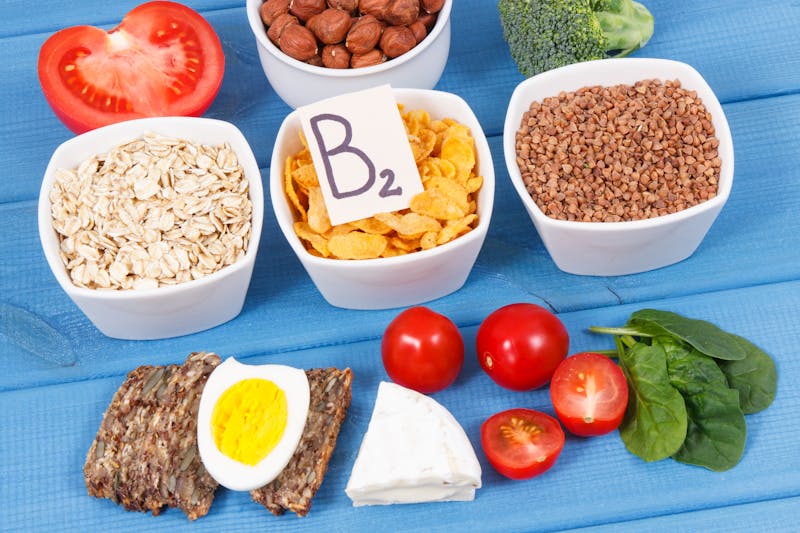
Vitamin B-2 (riboflavin)
Vitamin B 12 or riboflavin primarily helps in converting food into energy. It also helps to support your vision and contributes to a healthy metabolism.
Source: Riboflavin is found in broccoli, spinach, grains, milk, meat, poultry, and fortified cereals
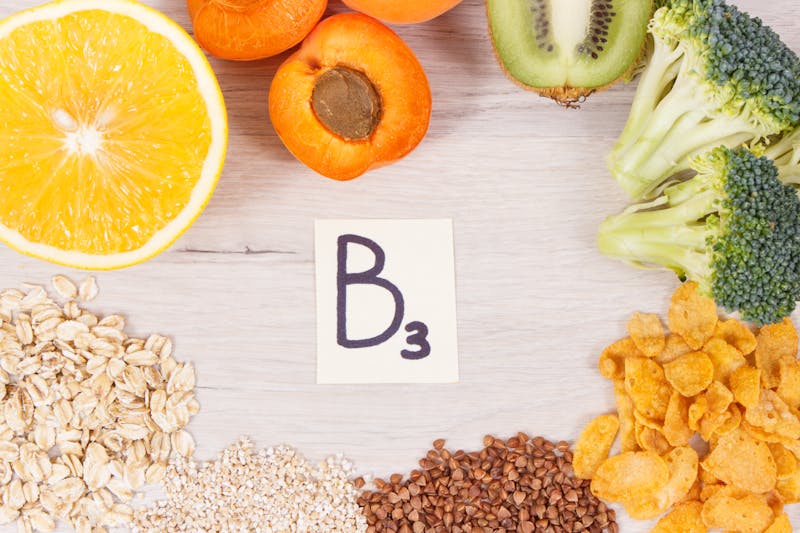
Vitamin B-3 (niacin)
Niacin helps in converting food into energy and is necessary for healthy skin and for normal functioning of blood cells and nervous system.
Source: Niacin is found in beef, poultry, fish, mushroom, eggs, legumes, and fortified breads and cereals.
Vitamin B-5 (pantothenic acid)
Like other B-complex vitamins, Vitamin B5 helps the body to convert food into energy. It aids in the proper functioning of your nervous system and plays a critical role in the formation of red blood cells.
Source: Vitamin B5 is found in majority of food such as corn, cauliflower, tomatoes, avocado, broccoli, legumes.
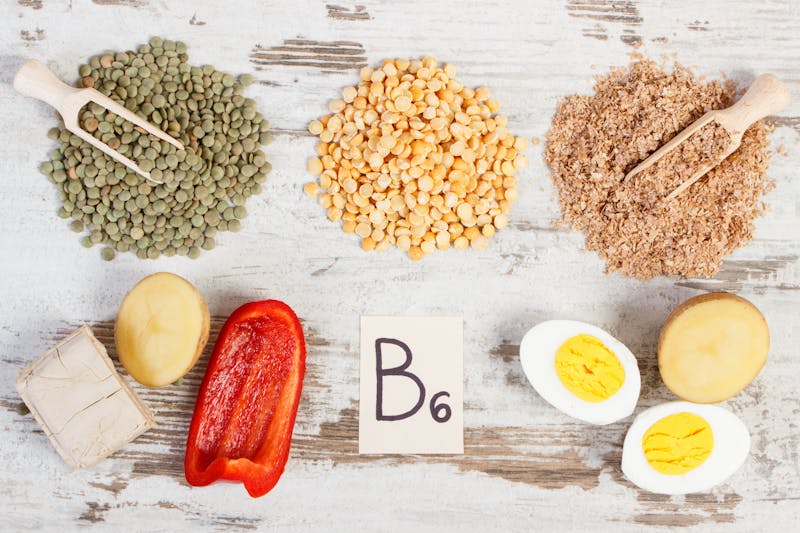
Vitamin B-6 (pyroxidine)
Vitamin B-6 plays important role in proper growth and development of brain, nerves, skin and other parts of body. It turns food into energy and plays key role in brain development during pregnancy.
Source: Vitamin B-6 is found in green leafy vegetables, meat, potatoes, poultry, fish, grains, and cereals.
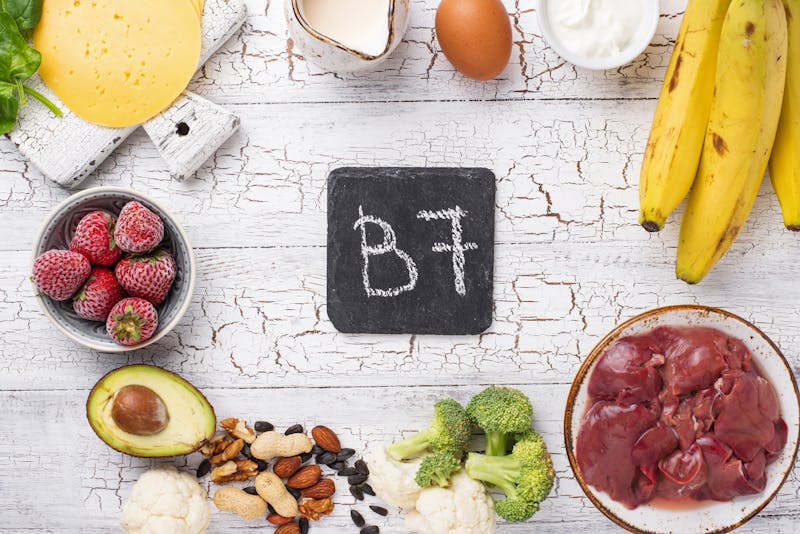
Vitamin B-7 (biotin)
Biotin helps metabolize carbohydrates and amino acids. It is essential for healthy bones, hair, skin and nails.
Source: whole grains, egg yolks, nuts, yeast, cauliflower, mushroom, fish are all good source of vitamin B-7.
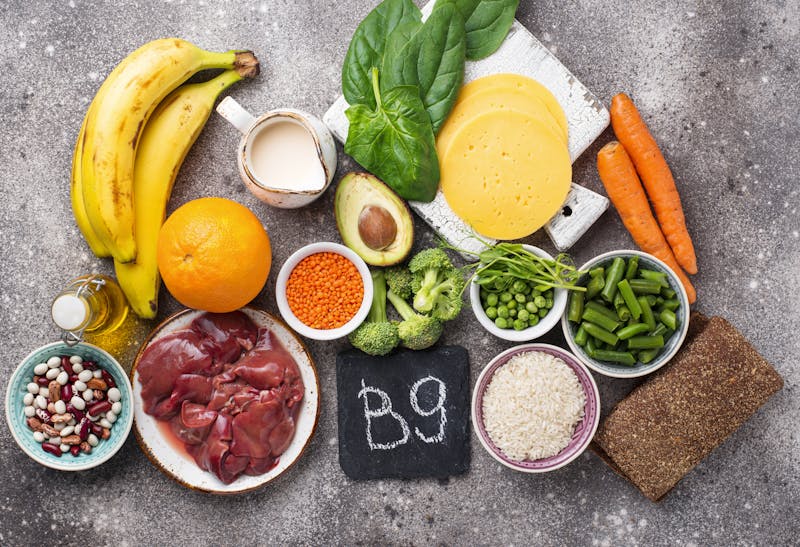
Vitamin B-9 (folate)
Folate is an extremely important vitamin for pregnant women. It also plays important role in the production of DNA, RNA and RBCs.
Source: Folate rich food include green leafy vegetables, poultry, eggs, legumes, citrus fruits, asparagus, liver, yeast and cereals
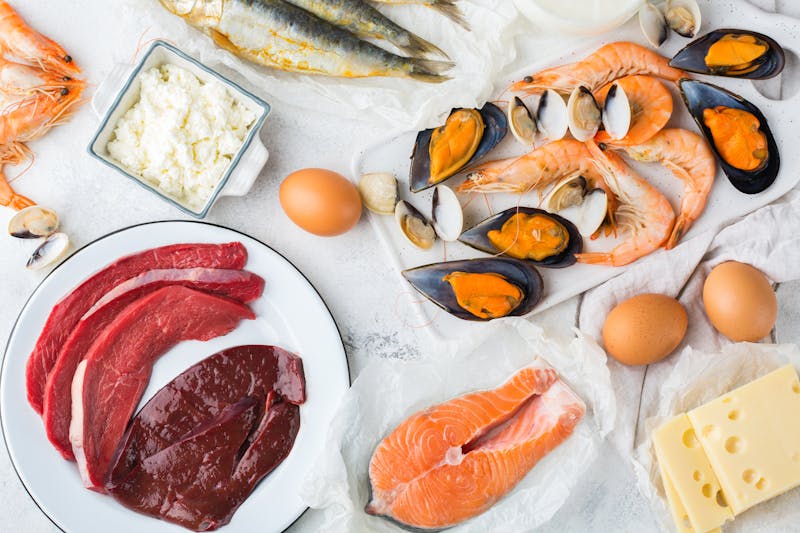
Vitamin B-12 (cobalamin)
Vitamin B12, also known as cobalamin or cyanocobalamin is one of the essential vitamins needed for the production of healthy red blood cells (RBCs) and DNA. It regulates the normal functioning of the brain and nervous system. People who do not consume meat or dairy are at higher risk for developing vitamin B 12 deficiency. If not taken in adequate amount, vitamin B- 12 deficiency can cause megaloblastic anemia and neurological changes. To prevent Vit B-12 deficiency, a dietary supplement should be taken.
Source: Vitamin B 12 is naturally found in animal products such as meat, eggs, fish, poultry or milk. It is also found in fortified breakfast cereals.
Source:
Share this on Social media
HEALTH DISCLAIMER
This blog provides general information and discussions about health and related subjects. The information and other content provided in this blog, or in any linked materials, are not intended and should not be construed as medical advice, nor is the information a substitute for professional medical expertise or treatment.
The content is for information purpose only and is not a medical advice. Qualified doctors have gathered information from reputable sources; however Credence Medicure Corporation is not responsible for errors or omissions in reporting or explanations. No individual should use the information, resources and tools contained herein to self diagnose or self treat any medical condition.
If you or any other person has a medical concern, you should consult with your health care provider or seek other professional medical treatment. Never disregard professional medical advice or delay in seeking it because of something that have read on this blog or in any linked materials. If you think you may have a medical emergency, call your doctor or emergency services immediately.
The opinions and views expressed on this blog and website have no relation to those of any academic, hospital, health practice or other institution.
Credence Medicure Corporation gives no assurance or warranty regarding the accuracy, timeliness or applicability of the content.
comments powered by Disqus

